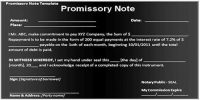The loan creates Deposit –
Loans create deposits. A bank makes a loan to a borrowing customer. Banks do not loan out deposits. When you deposit money in a bank, you are not putting it “hard at work” in any way. We’ve heard it many times now. But how well is it understood? The phrase is typically invoked accurately, in conjunction with a rejection of the “money multiplier” fable found in economic textbooks. From an operational perspective, banks do not “lend reserves” to their non-bank customers. “Loans create deposits” is an operation in endogenous money. It is not funding factories, houses, or anything else. Saving money in a bank is the same as putting it under the mattress. And where central banks impose a level of required reserves based on deposits, the timing of the demand for and supply of reserves in respect of such a requirement follows the creation of the deposit – it does not precede it. The money multiplier story is bunk. And ‘loans create deposits’ is correct as an observation.
Nevertheless, there is a larger context for deposits, which includes their fate after they have been created. The borrower is credited with a deposit in his account and incurs liability for the amount of the loan. Deposits are used to repay loans, resulting in the ‘death’ of both loan and deposit. The bank now has an asset equal to the amount of the loan and a liability equal to the deposit.
But there is more. As part of the birth/death analogy, there is the lifetime of loans and deposits to consider. This sequence of birth, life, and death in total may be helpful in putting ‘loans create deposits’ into a broader context. There is potential for confusion if ‘loans create deposits’ is embraced too enthusiastically as the defining characteristic, without considering the full life cycle of loans and deposits. Indeed, we shall see further below that ‘deposits fund loans’ is as true as ‘loans create deposits’ and that there is no contradiction between these two things.
















